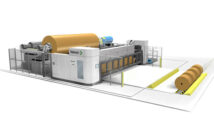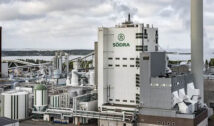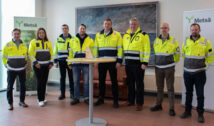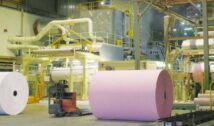
Highly dependent on the economic context, the European pulp and paper sector has experienced a slowdown in 2022, particularly in the last quarters of the year. A declining trade balance may point to a decrease in global competitiveness, amid a period of regulatory uncertainty for Europe’s industry overall, and paper and board packaging producers especially.
Consumption of paper & board in Europe declined by -3.5% over the full year, with a steeper decrease at the end of 2022 than previously estimated, as the Eurozone was entering a recession in great part driven by record high energy and raw material prices.
After the release of a preliminary report earlier this year, Cepi’s final statistics report for 2022 shows a downwardly revised figure for paper and board production, with a decrease of 6.1% compared to 2021.
This decrease in production is more pronounced than the one experienced during the Covid-19 crisis (-4.7% in 2020). Record-high energy prices have notably led to temporary machine stops during the second half of the year.
Multi-year trends for pulp and paper manufacturers remain however positive. Packaging paper and board, as a sustainable substitute for fossil-based alternatives, still is one of the sector’s main drivers for growth. But, exceptionally, paper and board packaging production in Europe has decreased in 2022, by 4.6% compared to 2021.
Paper for recycling utilisation in Europe decreased by 6.4% in 2022. This evolution is explained, in addition to lower packaging production, by the record high electricity, gas and CO2 prices which have disproportionally affected paper recycling mills.
Although the sector’s trade balance remains positive, a decline both in and outside European markets reflects the sharp contraction of the production and may point to a weakening of the sector’s competitiveness.
While pulp and paper producers have known high levels of investments over past decades proportionally to their size and resources, as presented in Cepi’s key statistics report, even larger green investments will be needed in the coming years to answer the EU’s climate ambitions.
Download Cepi’s key statistics report for 2022.
Jori Ringman, Director General Cepi, Confederation of European Paper Industries
“Current economic conditions mean that the cost of the projects in which pulp and paper companies are already engaged have increased, while regulatory predictability has decreased. Our ambition as an industry has not, and we will continue to propose affordable and scalable solutions for the EU’s transition towards a circular bioeconomy.”

































